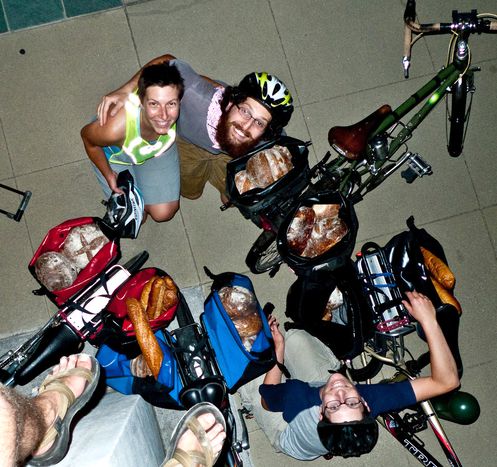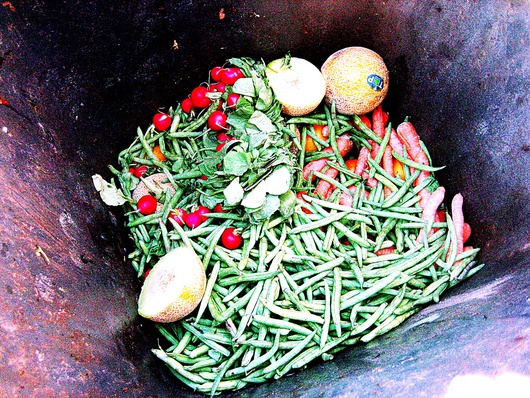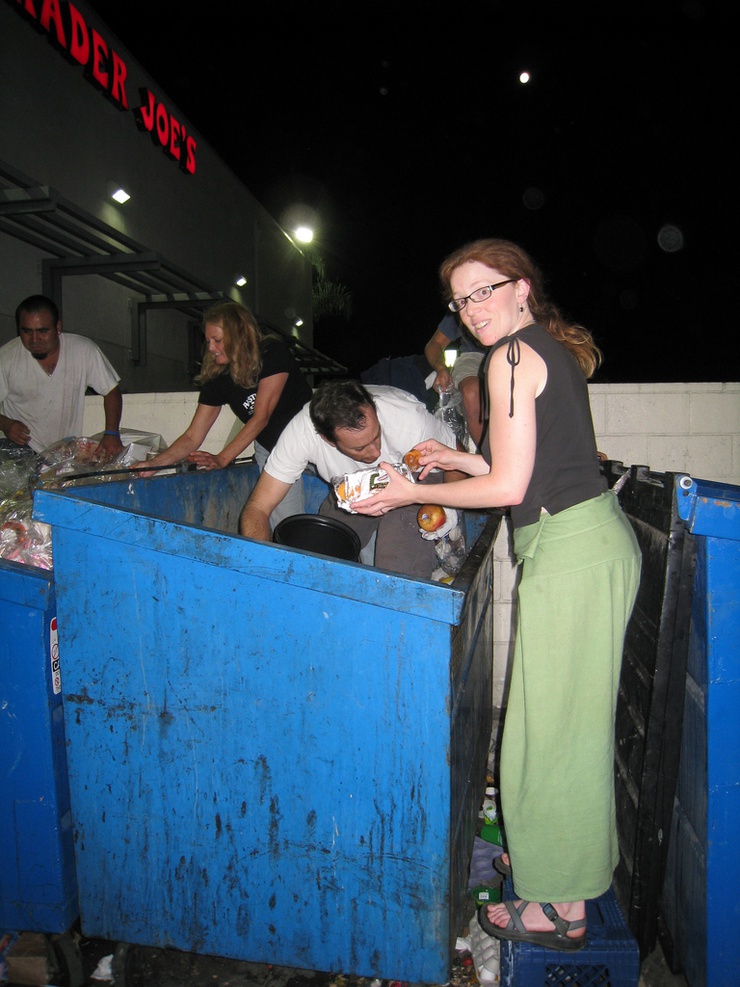
Freeganism in Poland: 'horror' of taking food from bins
Published on
Translation by:
 JK
JK
Freeganism, a way of life for a small percentage of the world’s population, is above all an extremely anti-consumerist attitude calling for restraint. It openly expresses opposition to corporations that only want to enrich themselves because today the sale of goods in their pure form is disappearing
Freegans demand that our needs be satisfied by recycling, by repairing products that seem at first glance to be useless, and by mutual exchange. One form of freeganism is squatting, whereby derelict land sites, mainly buildings, are managed so that they can go on to serve as residential accommodation or are converted into areas for public use. This is all in the belief that housing should be a right and not a privilege. But the thing that people find most shocking about freegans is that they don’t even buy food.
Not buying food
 Supermarkets throw out en masse perfectly good, sealed or completely closed products whose sell-by date has just passed or will soon pass. Kilograms of vegetables and fruit that are only slightly decayed or simply 'look bad' also go into the bin. Freegans do not rummage through bins in search of food because their situation forces them to do so. They are trying, in fact, to show that too much perfectly good food ends up with the rubbish. A few young people proved this by gathering over 30kg of vegetables from bins over one night in Warsaw. The next day they made soup out of the vegetables and gave it to the homeless.
Supermarkets throw out en masse perfectly good, sealed or completely closed products whose sell-by date has just passed or will soon pass. Kilograms of vegetables and fruit that are only slightly decayed or simply 'look bad' also go into the bin. Freegans do not rummage through bins in search of food because their situation forces them to do so. They are trying, in fact, to show that too much perfectly good food ends up with the rubbish. A few young people proved this by gathering over 30kg of vegetables from bins over one night in Warsaw. The next day they made soup out of the vegetables and gave it to the homeless.
We still cannot completely avoid shopping for food, although we regularly go to the bins around Wroclaw (and not only Wroclaw). That always results in a magnificent lunch. Our favourite place is the bins of the supermarket chain Biedronka. Biedronka throws out huge amounts of perfectly good food and usually we don’t have enough space in our backpacks to carry home as much as we would like. Lately I brought home a few kilograms of melons that we used to make a delicious salad and melon cocktails. When we were in Gdynia on the Baltic coast all we needed was fifteen minutes at a market to collect enough food and make a soup that fed seven mouths over two days.

People are usually filled with horror by the fact that we take food from bins. But when they eat a meal that we have prepared, and are not aware of where the food came from, they praise it to the skies. This actually happened once – my fiancée’s mother was doing her shopping in Biedronka while we were rummaging in the bins out the back. We then made a tasty lunch from the bin-broccoli and a cocktail from the bin-bananas. Her mother and the rest of the family were delighted with the meal and only found out where the food came from a few weeks later. But their reaction was positive.
Freegans in vegetarian footsteps
Fast-food outlets, restaurants and cafés are another matter. My fiancée worked for a long time in an ice-cream parlour that is famous throughout Poland. Perfectly good food was thrown out on a regular basis only because it wasn’t suitable for decoration. The workers were not allowed to take or eat these products – they simply had to throw them into the bin. We couldn’t bear this. We sometimes smuggled home this food that was just slightly gone off or simply unsuitable for decoration and we used it to make cocktails, desserts or just ate it as it was. According to a 2007 report by the united nation’s environmental programme (UNEP), about half of all produced food is wasted while 824 million people suffer from chronic hunger.
Half of all produced food is wasted while 824 million people suffer from chronic hunger
Firms employ marketing specialists who aim to use influential advertising based on human emotions and, in an open and obvious way, manipulate the consumer in order to increase profit. Solving global problems is not easy but the world should start by changing the way it behaves in this one area. This has already been proven possible by vegetarians, whose numbers, according to recent sources, now represent 3 - 6% of the world’s population. This obviously reduces the demand for meat from dead animals by 3 – 6%, thus already quite a large amount. Freegans, although they are not yet as common as vegetarians, operate with an equally powerful conviction - that their stance can change the world
Images: ©narnua; © Zane Selvans/ 'The Bin Raiders', part one of three, by ©Gaby Hull on Youtube
Translated from Friganizm - antykonsumpcyjny krzyk o opamiętanie


